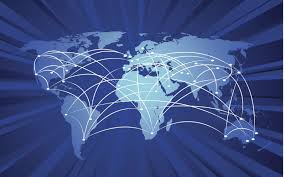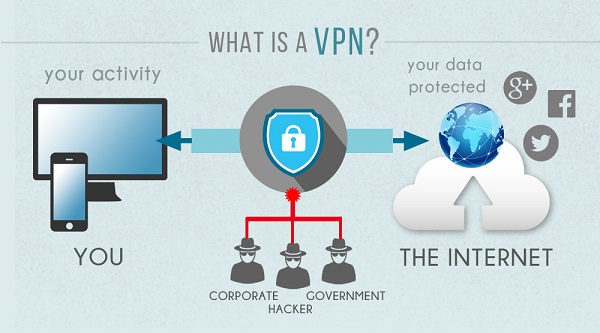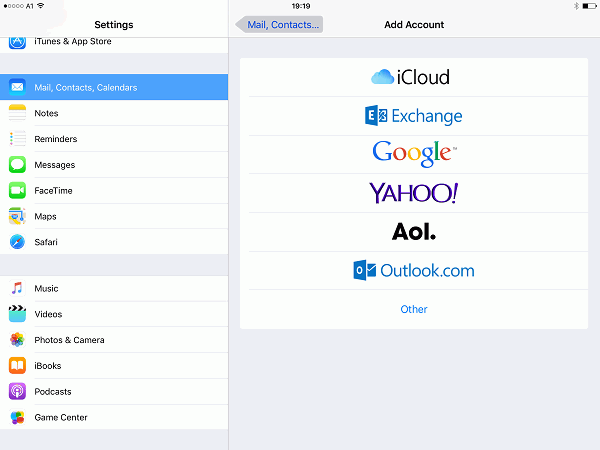The Web and Why Your Location Still Matters
When it comes to the internet, we have a tendency to think about it as all-encompassing, worldwide phenomenon that transcends the boundaries that we have imposed upon ourselves within the world. It is natural to think this way; we use the internet to access services that are hosted in countries halfway across the world, or speak to grandparents via Skype calls that span from France to Australia, and when we do this we perceive this digital world to be barrierless.

The truth, however, is far from it, and these digital barriers exist around countries just as borders do, and when traveling you would have noticed how some of the services might not give you the same access to features that they do when you are at home. The reasons for this are manyfold, sometimes to do with streaming rights that have been bought for that particular country, and sometimes due to national or international laws. Either way, when traveling, you are bound to notice some of your most popular and widely used services are unavailable.
Can' t go through? Go around instead
There are ways to circumvent these regional barriers, however, the use of a VPN being the most popular and widespread. You can use a VPN (or Virtual Private Network) to unblock any web service you desire, which works by routing traffic through the country of your choice, and in essence, turning that data traffic into local traffic. This allows for service such as Netflix to offer a different selection of movies and TV shows depending on which country you select as your VPN' s target location. So if you are an American who is missing the comforts of home, a VPN can help, at least with your entertainment options. Learn more in How to Use a VPN to Unlock Any Web Service.

Broadcasting rights
The reason that entertainment services require specific locations is generally due to broadcasting rights. When a service such as Netflix buys the rights to show a movie or series, it will usually come with some stipulations about where it can be seen. Buying the rights for shows that can be seen worldwide is more costly, and not always possible (depending on the content and an individual country' s current laws), so many titles will be 'geo-locked' to certain countries. As time goes by, we are sure to see less of this, but right now, your physical location is tightly linked to what you can watch (unless as stated you bypass those restrictions).
Big Brother is watching
Communication software is another service that can experience issues when traveling abroad. Some websites and apps such as Facebook will not work in countries such as China, but again can be subverted by using VPNs. Countries like China have banned the use of Facebook, and label the service a threat to political stability and social norms, so access has been denied countrywide. Other similar services are available, such as the hugely popular WeChat, but their security has been brought into question by those who worry that the social network is being used by the Chinese government to keep tabs on its citizens. In countries that have government regimes that are particularly stringent, VPNs are the lifeblood of a free press, and provide a pathway for information to get in and out of the country. While China has actually moved to ban the use of VPNs as well as some services, it remains to be seen whether these rules will be relaxed again, as they have been in the past.

Gaming and the need for fast connections
Another area of computing that relies heavily on geo-location, is gaming. When you play online gaming, and in particular fast-paced shooters or sports titles, the server on which your game is being hosted needs to be as close to you as possible if you are looking for a smooth experience. The closer the server is to your location, the less 'lag' you will see as a result. Because of this, most action-orientated games require you to play on a server that resides in your continent, which should give you enough bandwidth and a low enough ping rate to play online games reliably. Games that do not rely as heavily on reaction times have no need for such locations restrictions, but if by chance your favorite game does, fear not, for VPNs will help you here too.

So there we have it, right now your location is intrinsically tied to what you can and can' t do on the net. This doesn' t, however, mean there aren' t ways to get around these issues, and it doesn' t mean that these issues will be around forever. But for now, a borderless internet is a pipe dream, and many think an impossible one to turn into reality. Depending on which way we decide to lean in the future, VPNs and their ilk could become some of the most widely used internet services for the international traveler. Because of this, we can only hope that more countries and services relax their rules and expand their broadcasting rights respectively. If they don' t, people will tend to find a way around the issues, regardless. Is it really worth fighting a losing battle? We can only hope that countries and service providers start to realize that it is not.























